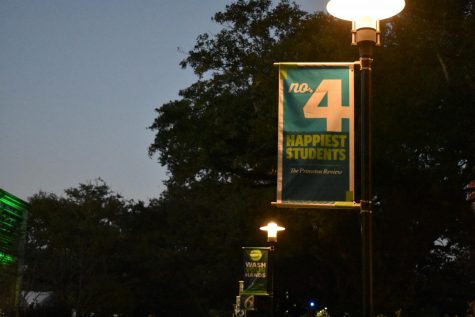OPINION | Tulane’s hypocrisy showcased by mandating service learning during pandemic
October 15, 2020

Tulane University’s mandatory service learning requirements have been written about many times before. While their purpose is about more than an angelic and selfless student body or administration, in the context of the community’s current predicament, this program feels even less genuine than usual.
Tulane implemented mandatory service learning in the undergraduate curriculum after Hurricane Katrina in 2005. Back then, the program was an idea with a great short-term impact. The Renewal Plan, approved by the Board of Tulane in December of 2005, said, “We realize that at post-Katrina Tulane, the size of our incoming first-year classes may be smaller. Rather than lower our admission standards in order to admit more students, we will maintain our academic standards by becoming smaller yet stronger.” However, the number of applications to the university reached a record high in 2008. It suddenly became clear that mandatory service learning had more than one benefit.
In this time in New Orleans, the purpose and outcomes of mandatory service learning courses were evident. Incoming freshmen provided direct assistance to the greater community by repainting public structures, replanting green spaces and rebuilding homes.
Now, during the COVID-19 pandemic, mandatory service learning makes little sense. There are far fewer opportunities to escape the Tulane bubble, and for good reason. Venturing outside of Tulane to mingle with the local community is the exact opposite of what the university should be encouraging. In urging students to get up close and personal with the city and by conducting in-person instruction, the university puts New Orleanians at risk. On top of that, forcing students to search for viable service learning opportunities when many sites remain closed or at limited capacity inadvertently pressures those needing to fulfill mandatory service hours prior to graduation to engage in riskier projects harmful to not only themselves but the city as a whole.
The Center for Disease Control and Prevention guidelines for avoiding COVID-19 are now ingrained into the minds of the student body. Reminders to wash your hands, sanitize everything, stay six feet away from everyone and most of all, stay home if possible seem to be prevalent everywhere.
And, of course, one can look at the more than 14,000-row spreadsheet on the Louisiana Department of Health website and notice that Orleans Parish presented with more active COVID-19 cases before Tulane started school than after. However, one could also reply that the difference between August 31 and September 1 clearly demonstrates a 55-case increase in the parish alone. So the question remains, who do we think those cases were? Tulane students or those affected by Tulane students’ actions?
The Tulane COVID-19 dashboard proudly places Tulane’s under 1% positivity rate right next to New Orleans’ over 1% positivity rate as if to boast some kind of accomplishment by being just slightly below the city average. With the frequent on-campus testing and the university’s numerous resources, it is far easier to locate an outbreak and quarantine it immediately on campus compared to a state that lacks sufficient health services.
The predicament remains by the unposed questions of “What happens to the waiter that a group of contagious students ordered drinks from at Tchoup Yard two weeks ago?” Service industry workers most likely are not allowed the privilege of weekly testing or even health insurance. What about those same students’ service learning site supervisor? Better yet, what if students participate in a service learning that interacts with marginalized communities, and those individuals grace the presence of people in need a few days after a night at The Boot Bar and Grill where they tossed off their masks and let go of the pandemic precautions?
Pretending that Tulane’s undying commitment to service aids the community is a bald-faced lie at this point. In reality the administration is trying to maintain a rhetoric that having students on campus implies that they pose no threat to the community. But, until classes and service learning are entirely remote, Tulane will always be putting New Orleanians at risk, and that is something the university will either have to solve or come to terms with.






















Leave a Comment